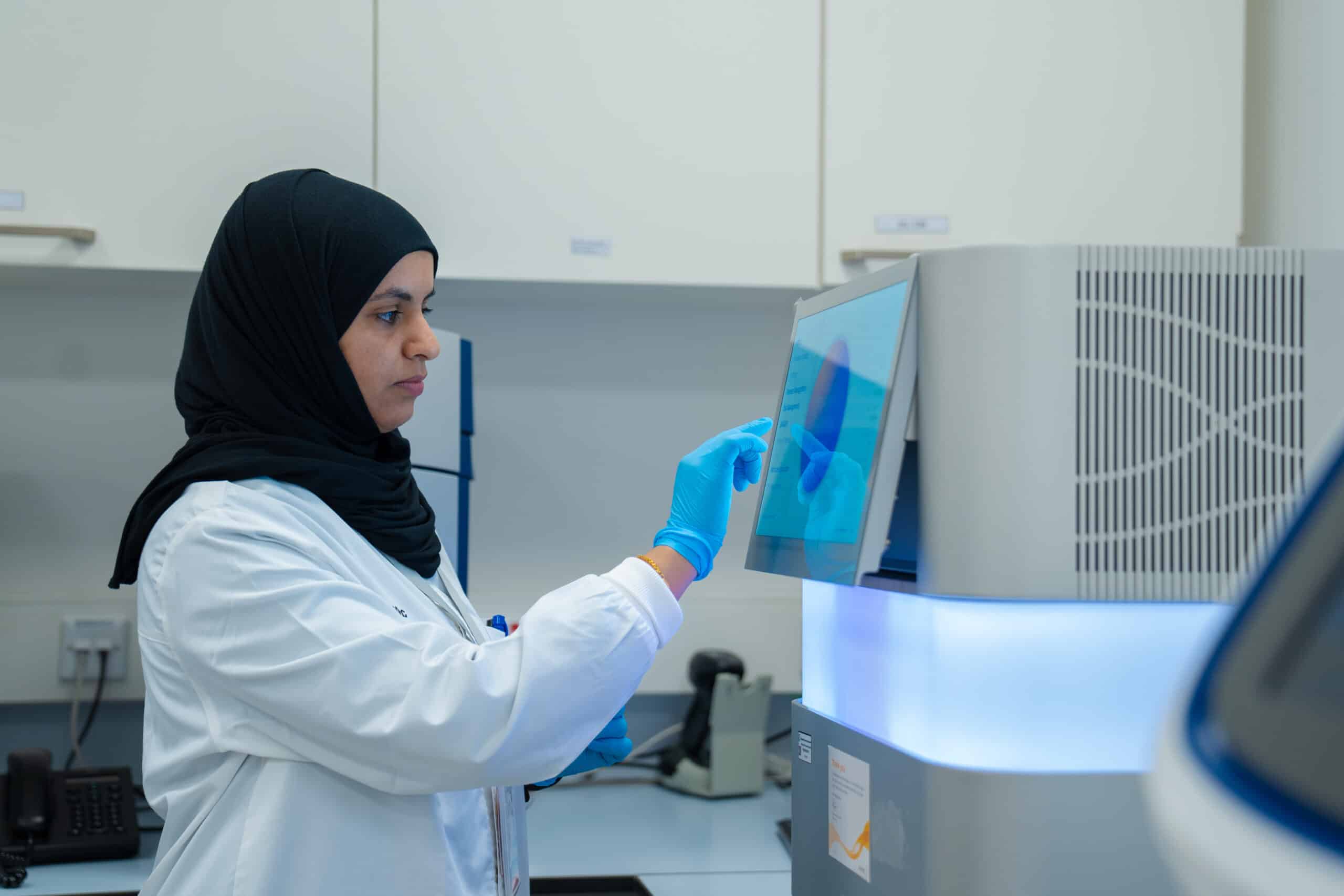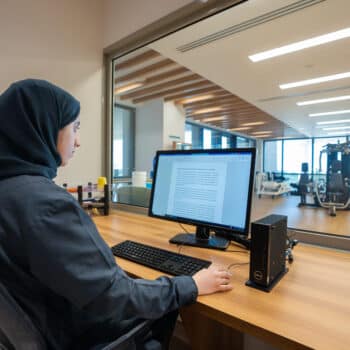Decoding Our DNA: The Breakthrough of Whole Exome Sequencing at SQCCCRC
Article: Dr. Shoaib Al-Zadjali – Research Laboratories
Introduction
Imagine having the ability to look deep into our genetic code to uncover the secrets held within our DNA. This is no longer just a thought for the future, but a reality at the Sultan Qaboos Comprehensive Cancer Care and Research Center (SQCCCRC) in Oman. Our dedicated research scientists have introduced a groundbreaking test that reads our genetic blueprint, offering hope and innovation in cancer diagnosis and treatment research.
A Leap in Cancer Diagnosis: Introducing Targeted Gene Panel Test
In September 2021, our talented research team made a significant advancement by implementing a panel that specifically targets cancer genes. This panel is now fully operational in our molecular pathology lab, aiding in the accurate diagnosis of various cancers.
Whole Exome Sequencing: A First for Oman
Our researchers at SQCCCRC have achieved a significant milestone in Oman’s medical history by introducing Whole Exome Sequencing (WES) to our research laboratories. This technique involves a comprehensive analysis of the exome, the part of our DNA that holds the instructions for protein production and plays a vital role in our health.
Understanding Germline vs. Somatic WES
When we speak of WES, it’s important to differentiate between ‘Germline WES’ and ‘Somatic WES.’ Germline WES is straightforward; it analyzes DNA from whole blood to detect inherited genetic variations. Somatic WES, however, delves into the DNA of tumor cells from tissue samples, identifying mutations that occur during one’s lifetime.
The Benefits of WES Over Targeted Gene Panel
While targeted gene panel look for specific genetic changes known to be linked to cancer, WES offers a broader view, examining thousands of genes simultaneously. This comprehensive analysis can uncover not only known genetic markers but also novel ones, potentially leading to more personalized and effective treatment strategies.
The Challenge of Somatic WES
Somatic WES presents more of a challenge compared to Germline WES, primarily due to the complex nature of tumor DNA, which can be mixed with healthy cells and contain a multitude of mutations. Despite these difficulties, our scientists are adeptly navigating this terrain.
WES in Action: The GI Clinical Program Project
Our team has applied Germline and Somatic WES to a pivotal clinical program titled, “Predictive Molecular Biomarkers for Response to Neoadjuvant FLOT4 Chemotherapy in Locally Advanced Resectable Gastric or Gastro-esophageal Junction Adenocarcinoma Using Multi-Omics Analysis.” By comparing genetic variations before and after treatment, our researchers aim to pinpoint which biomarkers predict a better response to chemotherapy.
Deciphering Cancer’s Code
The ongoing analysis of these results promises to yield invaluable insights that could revolutionize how we approach cancer treatment. At SQCCCRC, we’re not just reading between the lines of genetic code; we’re writing a new chapter in the fight against cancer.





